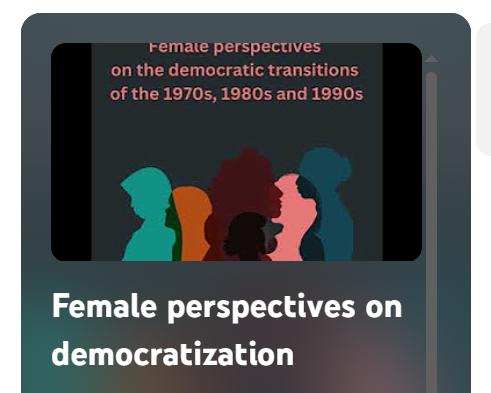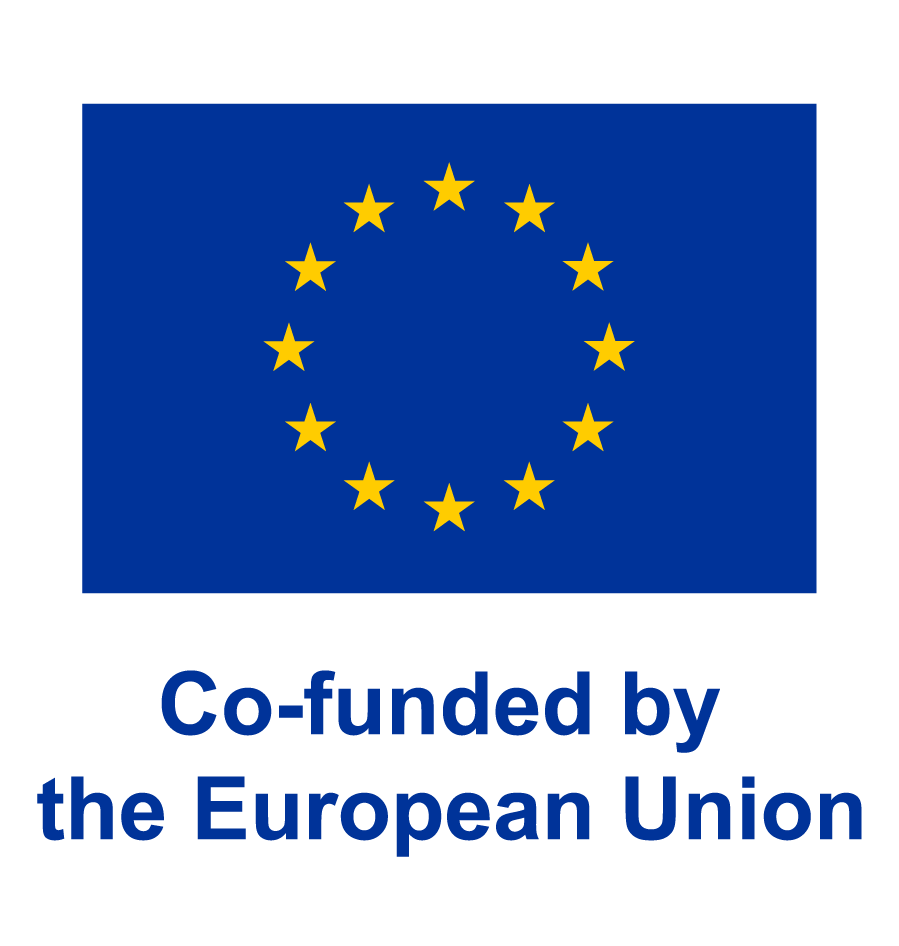Podcast series "Female perspectives on democratization"

The podcast series "Female perspectives on democratization" explores perspectives on democratization processes in different European countries: the transition from socialism to democracy in Bulgaria, the violent dissolution of Yugoslavia and democratic transitions in Croatia and Slovenia, the non-institutional democratization in Italy in the 1970s, marked by the „strategy of tension“, and the Spanish transition to democracy from the regime of Francisco Franco.
The podcasts are available on Spotify and Youtube:
https://podcasters.spotify.com/pod/show/female-perspectives-on-de
https://youtube.com/playlist?list=PLQvO03ap_DTd18auE3MG9i3f98SR4_Yo4&si=Jp4uQ6BhV49tBVNb
The project team created 16 podcasts in total, surpassing the project goal of creating 10 podcasts. While researching and conducting the interviews for the podcasts, it became evident that there is a great need for content that deals with democratization processes and takes into account female experiences and perspectives of the historical events.
The podcast promotes resistance to totalitarian and authoritarian regimes and practices in different European countries and secures visibility of women’s involvement in the democratic transitions. Several episodes give insight into small-scale historical events on local and community levels connected with democratization, while other episodes raise awareness about gender disparity in history teaching and understanding.
Following the methodology for the creation of the podcasts that the consortium created, the partners were working on the podcasts from March 2023 till February 2024. Each partner organization conducted research on the democratic changes in their country and identified the speakers they would interview for the podcasts. Following the aim to put an accent on female perspectives on the democratic changes /either with female speakers, or through the questions of the interviews/ and to also cover small-scale historical events, each partner conducted interviews with time witnesses in order to include them in the podcasts.
Documenta focused on democratization in Croatia as illustrated in the actions of the Antiwar Campaign of Croatia during the 1990s. The organization involved 5 prominent peace activists in the creation of 2 episodes, 1 in English and 1 in Croatian.
TFN focused on the Bulgarian transition from socialism to democracy by interviewing 4 women for the creation of 2 episodes. The episode in Bulgarian focuses on the first protests in socialist Bulgaria in the late 1980s, while the episode in English offers the perspectives of 2 young artists that describe themselves as « children of the transition » and focus on that topic in their first exhibition.
Las ninas del tul interviewed 5 timewitnesses to discuss the situation of women during and after the regime of Francisco Franco and to outline the changes brought by the democratic transition. The organizaton created 3 episodes – 1 in English and 2 in Spanish.
Lapsus focused on the non-institutional democratization in Italy in the 1970s, marked by the „strategy of tension“ and interviewed 6 women for the creation of the podcasts. The organization created 1 episode in English and 5 shorter thematic episodes in Italian.
APIS Institute involved 5 women in the creation of 3 episodes focusing on female experiences during Slovenia’s democratic transition in the 1990s. The organization created 2 podcast episodes in English and 1 in Slovenian.
The podcasts are a part of the project "Female perspectives on the democratic transitions of the 1970s, 1980s, and 1990s".
The project is co-financed by the European Union.
Views and opinions expressed are however those of the authors only and do not necessarily reflect those of the European Union or EACEA. Neither the European Union nor the granting authority can be held responsible for them.

